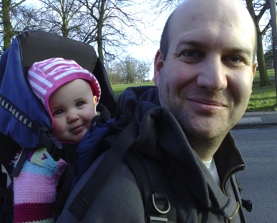We’ve covered acupuncture a lot on BiM and regular readers will be in little doubt about my interpretation of the evidence. The weight of acupuncture evidence is consistent with an inactive intervention. To my mind further research is pointless (heh). It represents, as we argued in The Conversation recently, an increasingly desperate exercise in mining pockets of subtle or manufactured uncertainty. Sure, the inherent biases of inadequate blinding, belief, publication bias, and wildly skewed interpretation will keep an element of marginal positivity to the evidence base, but viewed critically that is no more than we would expect from an inert but complex intervention.
In a recent edition of the journal Anesthesia and Analgesia two opposing groups present their case for why acupuncture has, or does not have value. The pro-camp are led by Shu-Ming Wang, the con camp by David Colquhoun and Steven Novella. You will find both here: pro / con, with the con argument reproduced in full on David Colquhoun’s website. What do you think?
To my mind there is nothing in the case presented by the pro-camp to encourage a change in my view on acupuncture, though I acknowledge it would take something special to alter my view. All of the usual logical fallacies make an appearance: the appeal to ancient and modern authority, the insufficiently critical selection of positive findings, the discussion of studies that seek to discover the mechanisms of a non-existent treatment effect. Why, they even throw in an odd allusion to eco-sustainability.
The con-camp argue that, viewed critically and sticking to meta-analysis evidence (a rare luxury that the sheer weight of acupuncture research affords us) there is no compelling evidence to support the efficacy of acupuncture over sham and, as such, acupuncture is merely a theatrical placebo. The arguments are familiar but no less powerful for that. Consider me convinced (though of course I was before).
Wang and colleagues end their case with an odd but quite striking declaration: “Overall, acupuncture practice should not be seen as a placebo intervention or merely a needle therapy but a medical option that not only treats disorders but also fosters a greater awareness of how harmonic interactions between self, family, work, and environment play a role in promoting health and restoring order”.
Now I have read and re-read this remarkable statement a number of times. It might take a greater philosopher then my limited self to grasp this but it strikes me as an example of what my Grandad would have called “a load of old flannel”. It obfuscates rather than enlightens. I simply don’t see how pricking people with needles is any more holistic than giving a pill, or applying the parlour trick of clicking a joint.
As we have found in the past, and maybe I have demonstrated here, these debates won’t alter the view of those who have already decided, but hopefully they might influence those who are yet to take a firm view. The growth of acupuncture into Physiotherapy practice has been, in my opinion, a hugely regressive step. It seems to be to be the opposite of holistic care. Rather it is passive, inherently paternalistic, lazy and scientifically dubious. But most importantly, it doesn’t really work any better than pretending to do it.
Neil O’Connell
 As well as writing for Body in Mind, Dr Neil O’Connell, (PhD, not MD) is a researcher in the Centre for Research in Rehabilitation, Brunel University, West London, UK. He divides his time between research and training new physiotherapists and previously worked extensively as a musculoskeletal physiotherapist.
As well as writing for Body in Mind, Dr Neil O’Connell, (PhD, not MD) is a researcher in the Centre for Research in Rehabilitation, Brunel University, West London, UK. He divides his time between research and training new physiotherapists and previously worked extensively as a musculoskeletal physiotherapist.
He also tweets! @NeilOConnell
Neil’s main research interests are chronic low back pain and chronic pain more broadly with a focus on evidence based practice. He has conducted numerous systematic reviews including some for the Cochrane Collaboration. He also makes a mean Yorkshire pudding despite being a child of Essex.
Link to Neil’s published research here. Downloadable PDFs here.
References
Wang, S., Harris, R., Lin, Y., & Gan, T. (2013). Acupuncture in 21st Century Anesthesia Anesthesia & Analgesia, 116 (6), 1356-1359 DOI: 10.1213/ANE.0b013e31828f5efa
Colquhoun D, & Novella SP (2013). Con editorial: acupuncture is theatrical placebo. Anesthesia and analgesia, 116 (6), 1360-3 PMID: 23709076



